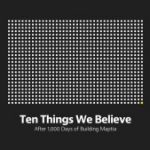When Third Culture Kids (TCKs) and expats are asked the question ‘where’s home?’ a similar answer, or lack of answer, typically follows:
Silence. A noticeable gulp. A panicked sequence of “Umm…” A weak laugh. An apologetic smile followed by an answer that could too easily be punctuated with a question mark.
‘Where’s home?’ is probably the most-dreaded question asked of the globally-mobile. For TCKs who have moved countless times, the question is avoided with fear and trepidation. Here is a sneak peek behind the thought-process of most TCKs when asked ‘where’s home?’ Our harried response is the result of what I describe as our ‘home-filter.’
TCKs’ Thought-Process Behind the Question ‘Where’s Home?’
I recently visited the US from Japan for seven weeks this spring. The day after I arrived, my aunt, sister, and I stopped in a small salon with the intention of a foot massage and French pedicure. Jetlag dragged my eyelids downward as a petite Vietnamese woman guided me to a cushioned spa chair and began filling the basin with warm, sudsy water. She soon left to seat other customers. Sleepily, I struggled to keep my eyes open.
“Hello.” A nonchalant welcome of an almost-imperceptible accent grabbed my attention. A Vietnamese nail-salon worker sat down in front of me. Wearing a fitted t-shirt and a pair of dark-wash jeans, he grinned as he grabbed a bottle of white nail polish and began shaking it vigorously. “You want a French?” he asked. I stared at him, his question refusing to register.
“Umm… yes please,” I finally answered, face heating. He laughed and stared at me, a strange expression flitting across his face. Laughing again, he shrugged and grabbed a pair of nail clippers. A moment of awkward silence followed. He glanced up from his work, attempting small talk. “So where’s home?”
My heavy eyelids snapped open. His strange expression now mirrored my own. Thoughts immediately began racing through my mind.
How much time do I have?
What country am I in?
Who’s asking?
Does he really want to know?
Does he want me to tell him where I was born or my nationality?
Is he asking where I live now, used to live, or where I feel most at home?
Do I go with the easy answer or the complicated answer?
How much energy do I have to explain?
Frustrated, part of me wanted to stomp my foot and scream, “I don’t know where my home is!” But instead, my eyes widened, I gulped, and my thought-process continued.
Why can’t I have a normal, less-than-ten-second-answer to this question?
Am I crazy?
I flipped through my carefully-practiced, perfectly-neat, and unrealistically-short responses to ‘where’s home?’ tucked in the back of my mind for moments like these. Japan? No. Ohio? No. Thailand? No. My home-filter ticked off answers. None seemed right.
Tongue-tied, I smiled, mumbled an apology, and eventually responded, “That’s a really hard question to answer.” He raised his eyebrows and grinned.
“Why?”
I cocked my head to the side, something in his gaze urging me to explain. I hesitated and took a deep breath, “I was born in the US, but my family and I moved to Hiroshima, Japan when I was nine-years old…” Conversation exploded. He began describing his childhood in Vietnam, recounting his transition to the US. We shared similar emotions, experiences, and stories of returning to our home country. I explained the term ‘Third Culture Kid’ with enthusiasm. We connected over our struggle to define ‘home.’
Like every other TCK I know, we possess a home-filter. Whenever we are asked the question ‘where’s home’ or ‘where are you from?’ we immediately, and many times unknowingly, begin listing and eliminating possible responses to the question. We begin ‘filtering’ our answer to home based on the interest of the person we are speaking with, the country we are currently in, or the amount of time and energy we have.
Navigating the Home-Filter as TCKs
I have four sisters, and we each answer the question ‘where’s home?’ completely differently. Our answers continually change. When my eight-year-old sister is confronted with the question, she blinks. She grins. And then she simply says, “Everywhere!”
When I was asked ‘where are you from?’ a few years ago, I quickly answered “Japan” without thinking. The questioner’s eyes widened in surprise. “Your English is amazing!” she slowly complimented, confusing me as Asian despite my blonde hair and blue eyes. I stared at her, dumbfounded and utterly confused.
TCKs’ answers to ‘where is home?’ are incredibly, and many times confusingly, unique. Instead of a concrete location we can easily define as home, we are connected and grounded in many cultures and countries. We must decide on an answer to the often-dreaded, yet commonly-asked, question. Time and time again, this highlights our difference and our ambiguous relationship to home.
Is answering the question ‘where is home?’ a factor in our struggle to define home as TCKs? And how does our automatic home-filter impact our identity?
How the Home-Filter Impacts TCKs’ Identity
In his book Arrivals, Departures, and the Adventures in Between, Chris O’Shaughnessy highlights his own struggle of determining the answers to where is home and where he is from. He writes, “What does define us? What describes us? Is it our beliefs, customs, and the way we think and behave? Is it our language, likes, tastes, passions, and talents? Is it our history, nationality, worldview, and surroundings? Probably. That’s what makes identity such an endeavor to figure out. It’s messy, complicated, and ultimately quite beautiful.”
As TCKs, we must recognize that although our answer to ‘where is home’ constantly changes, this does not make us homeless or rootless. It does not change who we are, our identity, or our background. Home-filters are not necessarily negative, but rather a coping mechanism.
The fact that home continues to change is beyond our control. Despite its confusion and difficulty to explain, it is a defining factor of the globally-mobile. For most TCKs, home is a difficult word to answer because its meaning continues to evolve and change over time.
And that’s okay.
Accepting this ambivalence is key in order to use our difference as TCKs. Having a secure sense of who we are gives us inner peace when we are asked the question ‘where’s home?’ It gives us confidence even when our home-filter begins racing. And it creates a sense of belonging when our answer to home keeps changing..




